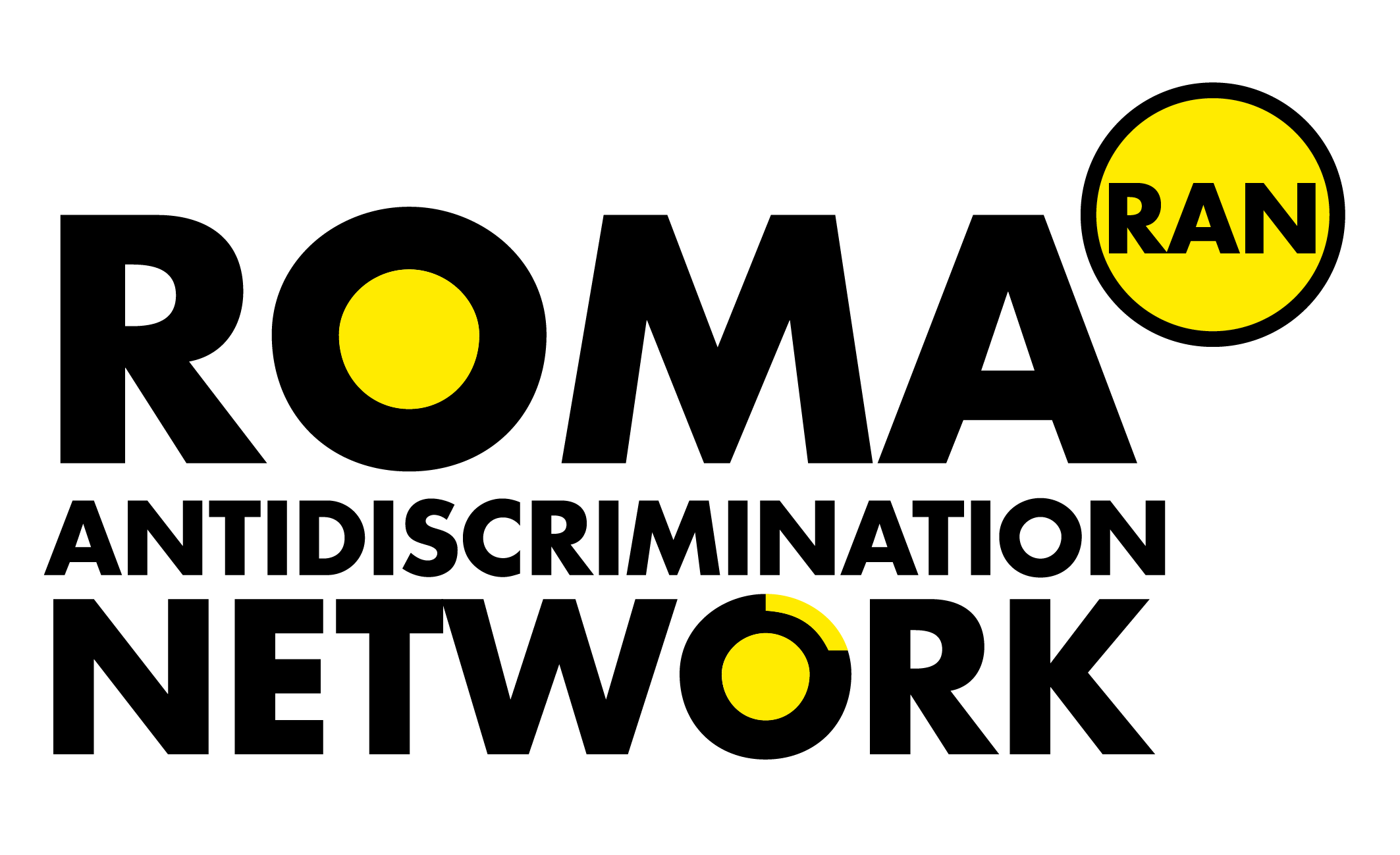Schule der Erinnerung Niš – Belgrad – Göttingen 2013/14
Schule der Erinnerung
Niš – Belgrad – Göttingen 2013/14
press_skola secanja_schule der erinnerung_school of remembrance_29
Über die Dringlichkeit des Projekts „Schule der Erinnerung – Wissensproduktion zum Völkermord an den Roma und wie gegen Antiziganismus kämpfen?“
In den letzten Jahren hat die Regierung Serbiens die große Bedeutung der Aufarbeitung der systematischen Ermordung der Juden zur Zeit der Besatzung durch die Nationalsozialisten erkannt und im Jahre 2012 veranstaltete sie die erste temporäre Ausstellung über den Holocaust in Serbien 1941-1944. Die Geschichte der Ermordung der Roma in Serbien zur Zeit des Zweiten Weltkriegs dagegen ist weiterhin nicht genügend erforscht und kaum bekannt. Neben dem Fehlen einer Kultur der Erinnerung an diese Ereignisse haben die weitgehende Vernachlässigung in der historischen Forschung und die fehlende Thematisierung des Völkermords an den Roma in den Lehrplänen der Schulbildung dazu geführt, dass diese Ereignisse in der Öffentlichkeit fast vollständig in Vergessenheit geraten sind.
Die wenigen systematischen wissenschaftlichen Forschungen über die Opfer und Täter des Völkermords an den Roma, die in den letzten drei Jahrzehnten in Serbien veröffentlicht worden sind, beziehen sich auf den Völkermord an den Serben und Roma im Lager Jasenovac in Kroatien. Heute stehen wir so vor dem Problem, dass, selbst wenn ein Interesse an Information und Bildung über Verfolgung und Leid der Roma in Serbien bestehen sollte, zu wenig Material dafür zur Verfügung steht. Eine der Ursachen für den Mangel an Information zur Verfolgung der Roma ist allerdings auch darin zu suchen, dass in Serbien Vorurteile und Rassismen den Roma gegenüber zum Alltag gehören.
Unsere Aktivitäten möchten dazu beitragen ein Bewusstsein dafür zu schaffen, wie wichtig es ist, die historischen Tatsachen aufzuarbeiten, auch im Hinblick auf die Kontinuität der Diskriminierung der Roma, die unter entsprechenden Umständen zu einem erneuten Völkermord führen könnte. In weiten Teilen Europas ist die Gemeinschaft der Roma auch ein gutes halbes Jahrhundert nach dem Ende des Zweiten Weltkriegs Ziel von Antiziganismus, Delegitimierung, Menschenrechtsverletzungen und systematischer Diskriminierung. Beispielsweise sind gewaltsame Deportationen von „geduldeten“ Roma aus Deutschland nach Serbien und in das Kosovo seit Inkrafttreten des Rücknahmeabkommens an der Tagesordnung.Gegen diese Praktiken gibt es jedoch auch Widerstand – genannt sei zum Beispiel die Initiative „alle bleiben“, die sich gegen Abschiebungen und für die Rechte von Roma einsetzt.
Aus den dargelegten Gründen ist das zweijährige Projekt „Schule der Erinnerung“ so konzipiert, dass es auf mehreren Ebenen Informationen sammelt und Wissen produziert. Während ein Schwerpunkt auf der historischen Forschung zum Völkermord an den Roma, seinen Ursachen und Mechanismen liegt, beschäftigt sich ein anderer Teil des Projekts mit Antiziganismus und systematischer Diskriminierung der Roma heute und fragt, wie wir dagegen vorgehen können.
Das Projekt „Schule der Erinnerung“ wird von drei Organisationen aus Serbien und Deutschland getragen, dem Women’s Space aus Niš, dem Forumfor Applied Historyaus Belgradund dem Roma Center Göttingen e.V. Es wird ermöglicht durch die freundliche Unterstützung der Rosa Luxemburg Stiftung Southeast Europe und der International Holocaust Remembrance Alliance – IHRA.
School of Remembrance
Niš – Belgrade – Göttingen 2013/14
On the urgency of the project “School of Remembrance – Producing knowledge about Roma genocide and how to fight Antigypsyism”
In recent years, the Serbian government has recognized the importance of raising awareness about the extermination of the Jews during Nazi occupation and in early 2012 organized the first temporary exhibition on the Holocaust in Serbia 1941-1944. The history of the Roma genocide in Serbia during the Second World War, however, is still insufficiently studied and widely unknown. The lack of a culture of remembrance of these events, the neglect of the Roma genocide in historical research and its absence from the curricula of school education have lead to the falling into oblivion of these events in the public.
The only systematic scientific research on the victims and perpetrators of Roma genocide conducted in the last three decades in Serbia was focused on the genocide against Serbian and Roma population in the Jasenovac camp in Croatia. Today we are faced with the problem that even if there might exist the wish to inform and educate about persecution and suffering of the Roma in Serbia, there isn’t enough material available to work with. Still, one of the main reasons for the lack of information and education on the persecution of the Roma, lies in the fact that in Serbia prejudices and racism against the Roma are part of everyday life.
Our activities aim to raise awareness about how important it is to work on the historical facts, with regard to the continuity of discrimination against the Roma, which could in a particular situation result in a repeated genocide. More than half a century after the end of World War II, in many parts of Europe the Roma community is target of Antigypsyism, delegitimization, human rights violations and systematic discrimination. For example, violent deportations of Roma refugees from Germany to Serbia and Kosovo are organized regularly according to the readmission treaty. But there is also resistance – as for example the initiative “alle bleiben” which fights for the rights of the Roma and against deportations.
For the above reasons, the two-year project “School of Remembrance” is designed so that it collects information and produces knowledge at several levels. While one focus is on the historical research on the Roma genocide, their causes and mechanisms is, another part of the project deals with Antigypsyism and systematic discrimination against the Roma today and asks how we can fight it.
The project “School of Remembrance” is supported by three organizations from Serbia and Germany, the Women’s Space from Niš, the Forum for Applied History from Belgrade and the Roma Center Göttingene.V. and made possible by the generous support of the Rosa Luxemburg Foundation Southeast Europe and the International Holocaust Remembrance Alliance – IHRA.
Škola sećanja
Niš – Beograd – Göttingen 2013/14. godine
O važnosti projekta „Škola sećanja – prikupljanje znanja o genocidu nad Romima i kako se boriti protiv anticiganizma“
Poslednjih godina vlada Srbije je prepoznala važnost podizanja svesti o stradanjima Jevreja u logorima tokom nacističke okupacije, te je 2012. godine podržala prvu privremenu izložbu o Holokaustu u Srbiji 1941 – 1944. Ipak, istorija stradanja Roma u Srbiji tokom Drugog svetskog rata još uvek nije dovoljno istražena i poznata. Nedostatak kulturnih događaja koji bi podsećali na ove zločine, i njihovo zanemarivanje u istoriografiji, pa čak potpuni izostatak u obrazovnom gradivu uopšte, doveli su do toga da sećanje na genocid prema Romina u javnosti gotovo da ne postoji.
Jedino sistematično naučno istraživanje o žrtvama i izvršiteljima genocida, a u kome se spominju i Romi i koje je objavljeno u Srbiji u poslednje tri dekade, je istraživanje o genocidu izvršenom nad Srbima i Romima u logoru Jasenovac u Hrvatskoj. Ovo dovodi do situacije da danas, čak i ako postoji volja da se prenose informacije i edukuje o stradanju Roma, nema dovoljno materijala koji bi tome koristio. Ipak, neki od razloga zašto nemamo podatke o stradanjima Roma i zločinima izvršenim nad njima, leže i u činjenici da je u Srbiji prisutan veliki broj predrasuda prema Romima, ali i rasističkog neprijateljstva.
Naše aktivnosti imaju za cilj da povećaju svest o važnosti otkrivanja istorijskih činjenica, kao i važnosti ukazivanja na kontinuitet diskriminacije Roma kao pojave koje u određenim uslovima vrlo lako može da dovede do ponovnog genocida. Romska zajednica je i dalje, pola veka nakon završetka Drugog svetskog rata, na udaru anticiganizma, delegitimizacije, kršenja osnovnih ljudskih prava i sistemske diskriminacije u velikom delu Evrope. Na primer, svakodnevne nasilne deportacije Romkinja i Roma – „Readmisanata“ iz Nemačke u Srbiju i na Kosovo. Sa drupress ge strane, postoje inicijative koje se bore za prava Roma i koje su protiv ovih nasilnih deportacija, kao što je naprimer inicijativa „alle bleiben“ („svi ostaju“).
Iz ovih razloga, dvogodišnji projekat „Škola sećanja“ je tako koncipiran da prikupi informacije i da proizvodi znanje na više nivoa. Dok jedan fokus leži na istorijskom istraživanju o izvršenom genocidu nad Romima, njegovim uzrocima i mehanizmima, drugi deo projekta se bavi današjnom sistemskom diskriminacijom i anticiganizmom ali i time kako prepoznati i sprečiti ove pojave.
Projekat „Škola sećanja“ partnerski pokreću tri organizacije civilnog društva: Ženski prostor (Niš), Forum za primenjenu istoriju (Beograd) i Roma Center Göttingen (Nemačka), uz solidarnu podršku Fondacije Roza Luksemburg (Rosa Luxemburg Stiftung) i Međunarodne alijanse posvećene sećanju na holokaust (International Holocaust Remembrance Alliance – IHRA)
press_skola secanja_schule der erinnerung_school of remembrance_29
http://www.teve-novine.org/skola_secanja_26062013.html


